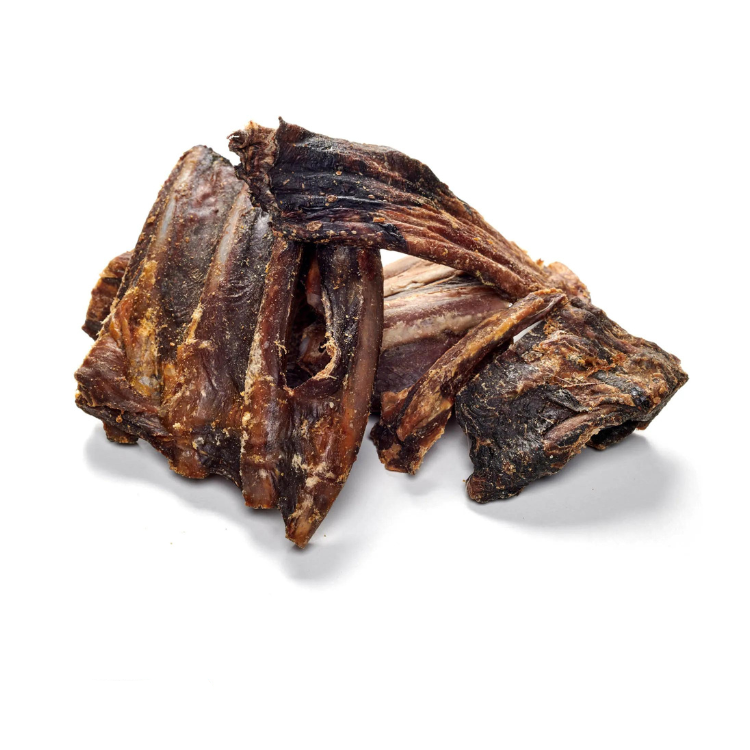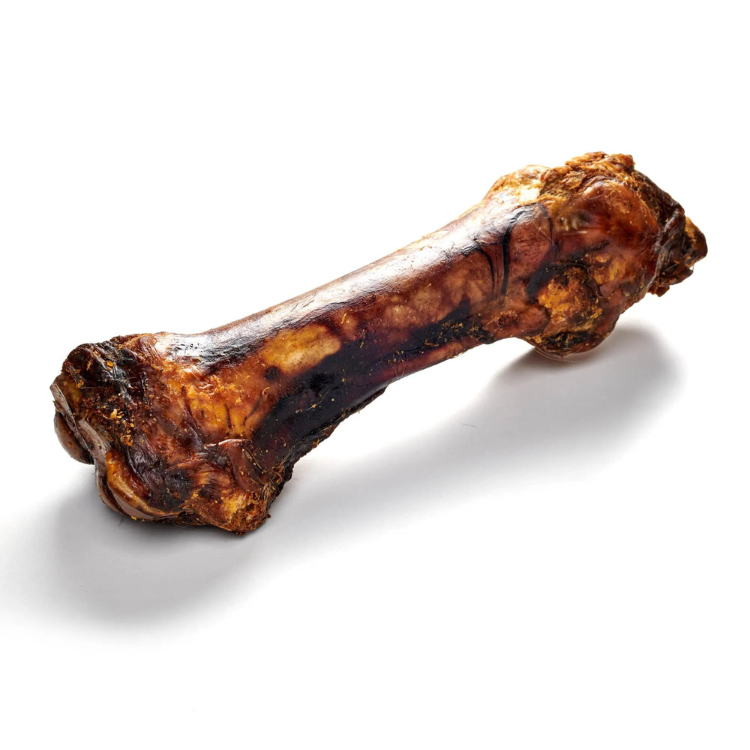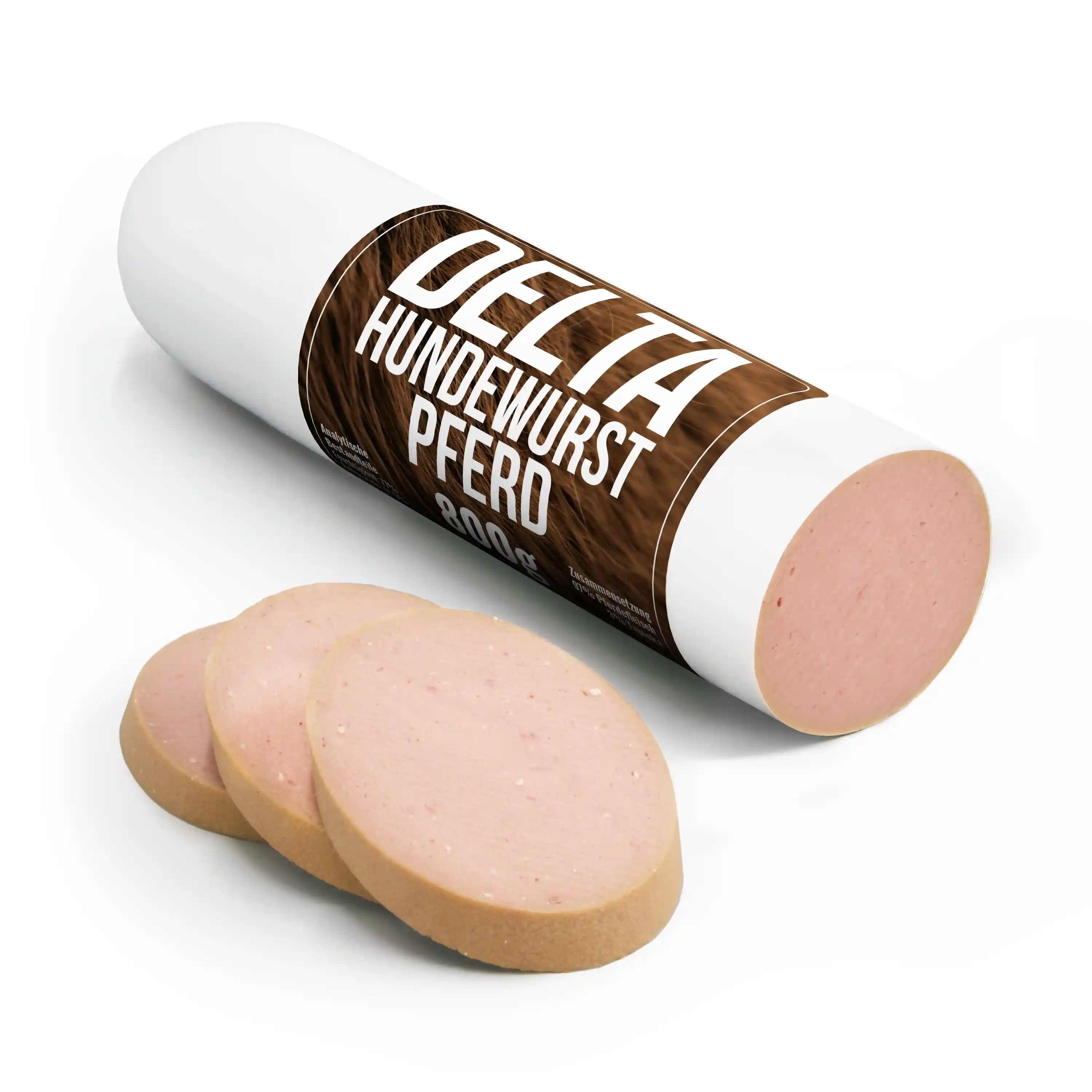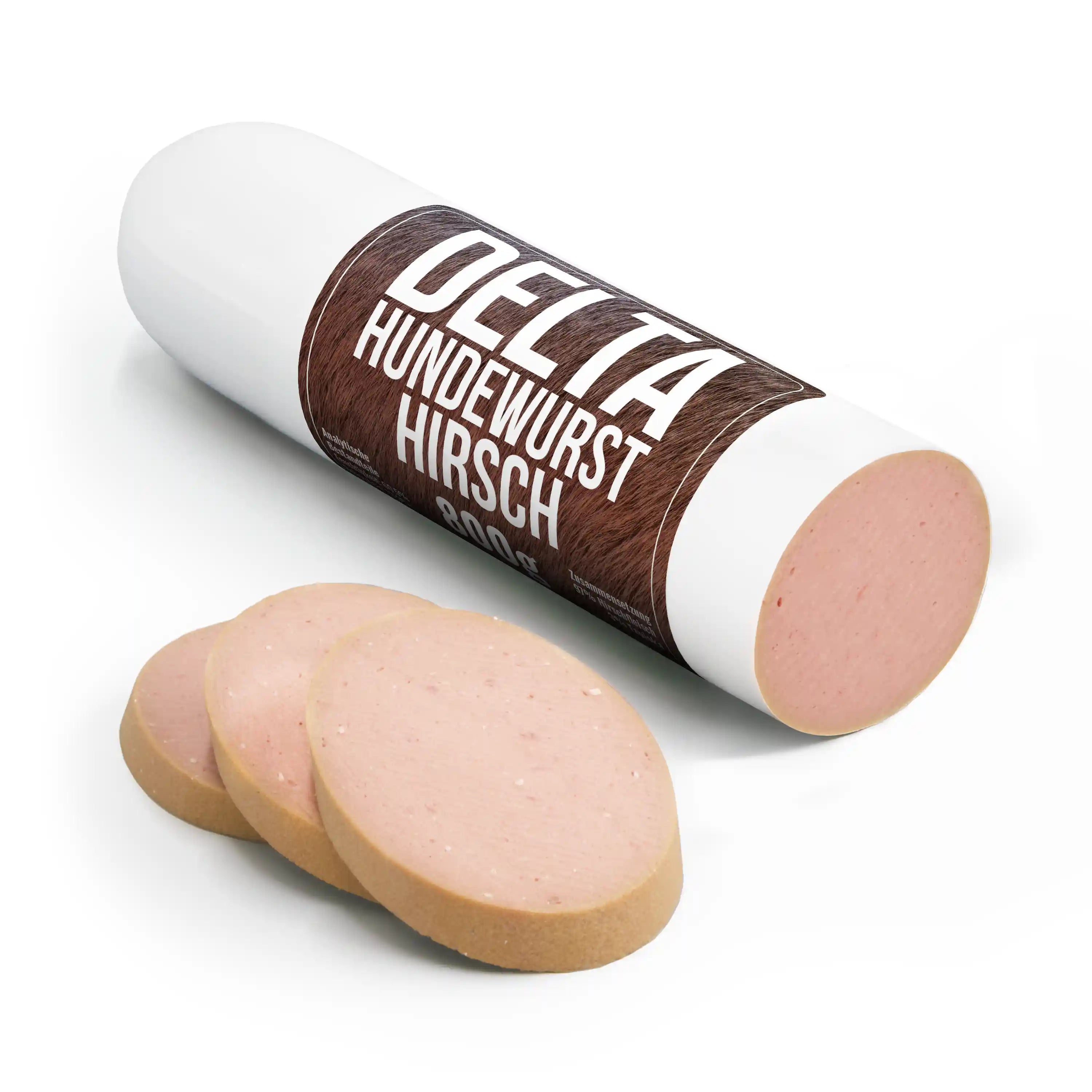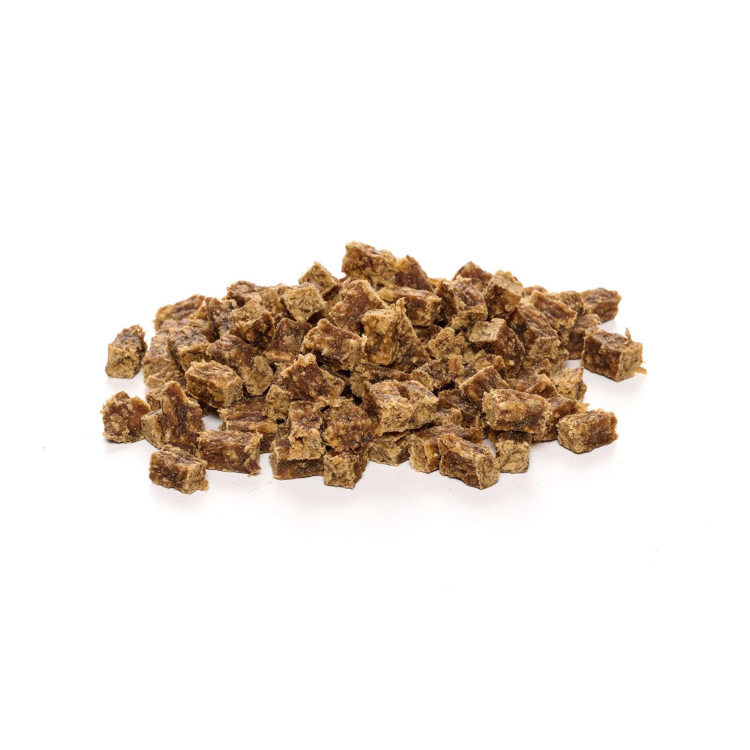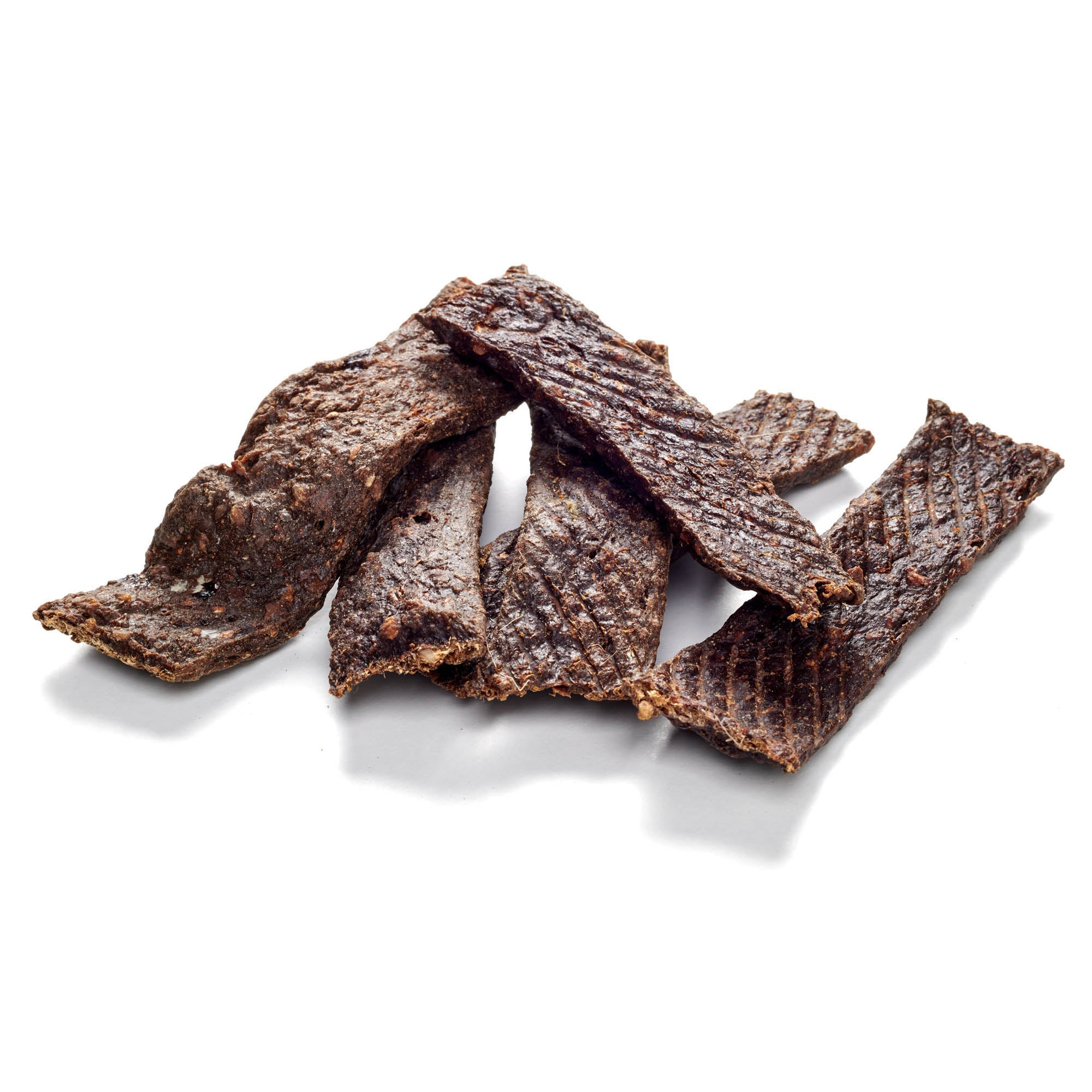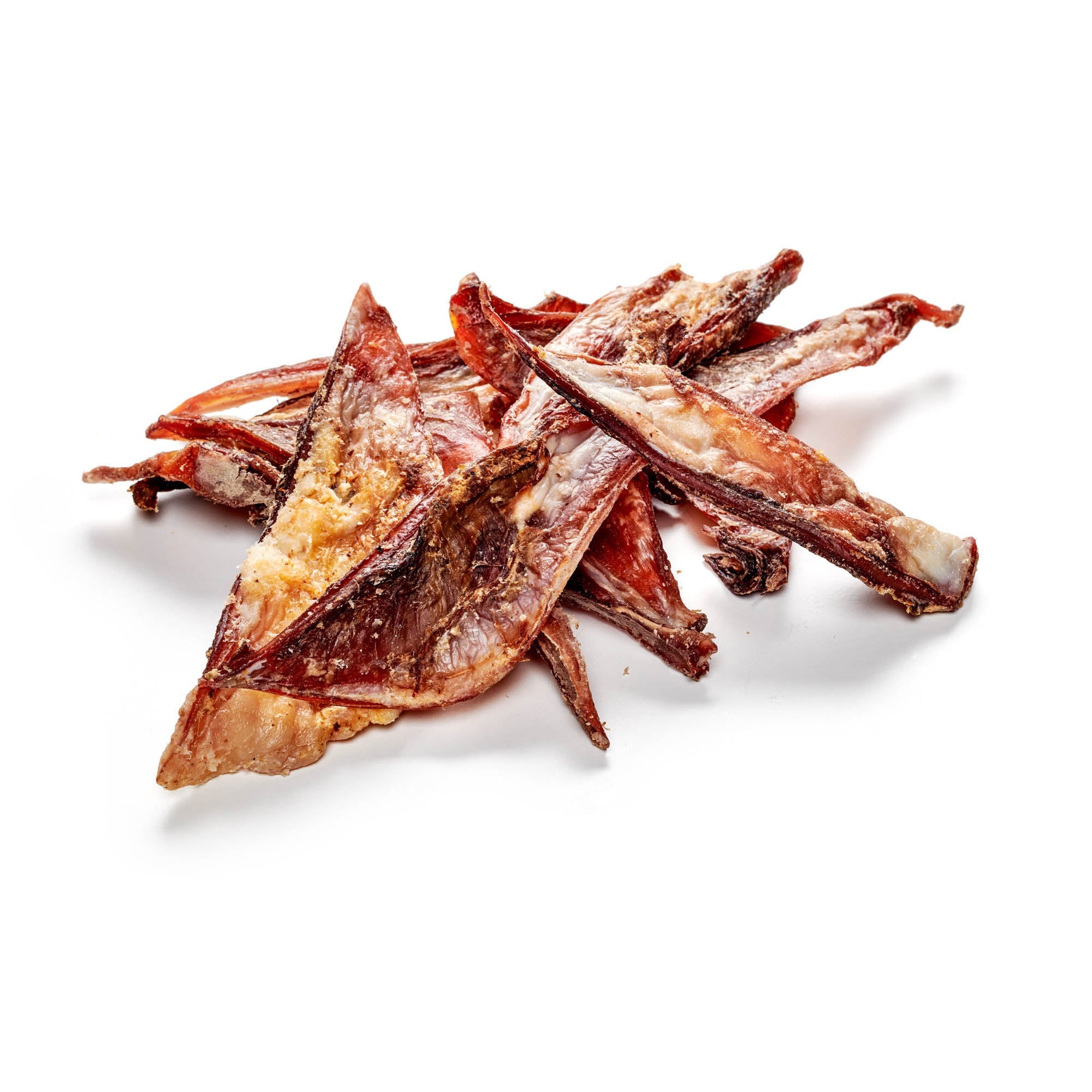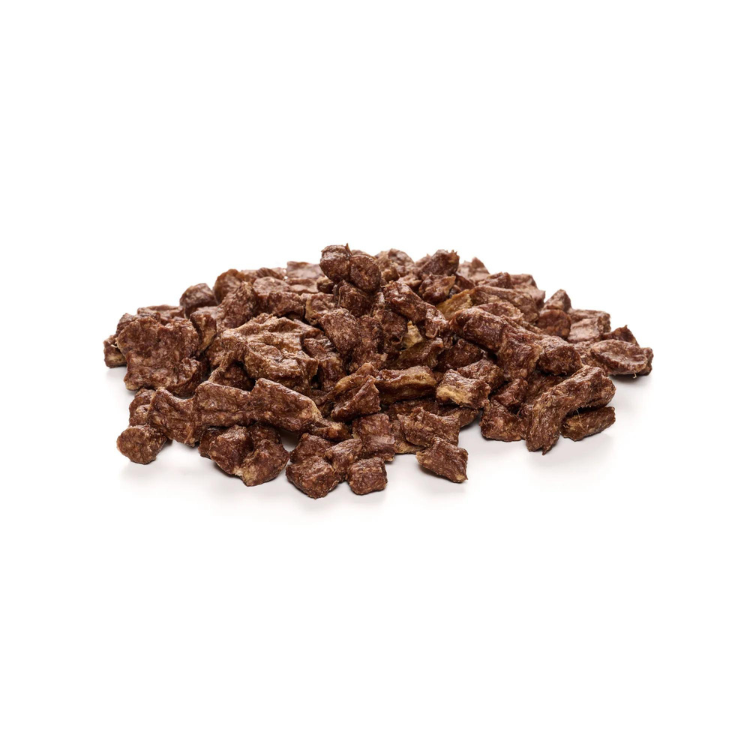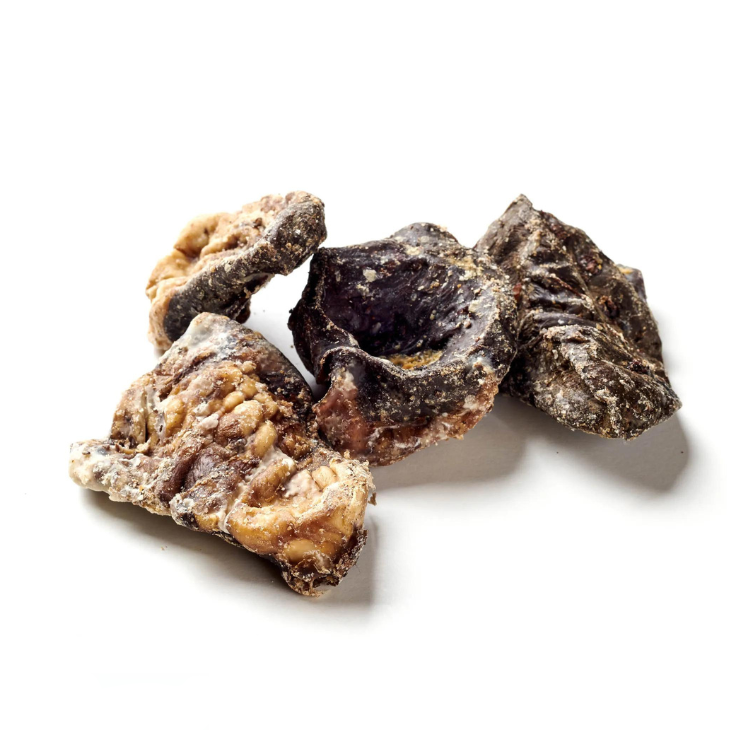
Plaque and tartar in dogs
Share
Behind the happy dog smiles there is often a serious problem: plaque and tartar. These invisible enemies lurk in the mouths of our four-legged friends and, if left unattended, can lead to serious health problems. Despite their robustness, dogs are by no means immune to dental problems that can significantly affect their quality of life. Regular dental care and understanding the causes and consequences of plaque and tartar are therefore essential for the health and well-being of our furry companions.
Content: Plaque and tartar in dogs
- What are plaque and tartar?
- Causes of plaque and tartar formation
- Consequences of untreated tartar formation
- Prevention and treatment
- The role of nutrition in dental health
- Conclusion
Plaque, a soft, sticky film of bacteria, constantly forms on a dog's teeth. If this film is not removed regularly, it can harden and turn into tartar, which can cause a variety of oral health problems. Tartar buildup is not just a cosmetic issue; it can lead to inflammation, infection, and in the worst cases, tooth loss.
First-class dog chews for happy sniffing noses available here!
What are plaque and tartar?
Plaque is a soft, sticky film of bacteria that constantly forms on a dog's teeth. These bacteria feed on food particles and saliva and multiply rapidly if not removed regularly. Plaque is initially colorless or slightly yellowish and can be easily removed by regularly brushing your dog's teeth or chewing on special dental cleaning treats. However, if plaque is left unattended, it begins to harden.
Tartar forms when plaque is not removed and hardens. This hardening occurs when minerals in the saliva react with the plaque, turning it into a hard, yellowish or brownish deposit. Tartar adheres tightly to the teeth and cannot be removed simply by regular brushing. Instead, its removal often requires a professional dental cleaning by a veterinarian to thoroughly clean the teeth and prevent further damage.
Causes of plaque and tartar formation
The main causes of plaque and tartar buildup in dogs are similar to those in humans: a buildup of bacteria in the mouth, poor dental hygiene and an unhealthy diet. Dogs fed soft food such as wet food are more prone to tartar buildup because soft food encourages plaque buildup and offers less abrasion that helps naturally clean teeth. Dry food , on the other hand, can help mechanically clean teeth and reduce plaque buildup.
Genetic factors also play a role in a dog's susceptibility to dental problems. Some dog breeds are genetically more prone to tartar and other dental problems. Small breeds such as Yorkshire Terriers and Dachshunds are more prone to tartar buildup, while larger breeds are often less affected. Individual differences in oral flora and saliva composition can also affect a dog's susceptibility to plaque and tartar.
Another factor is the dog's age. Older dogs are at a higher risk of tartar buildup and related dental problems because dental health deteriorates over time if regular dental care is not performed. Certain health conditions, such as diabetes, can also affect oral health and promote the buildup of plaque and tartar.
Consequences of untreated tartar formation
Untreated tartar buildup can lead to a variety of serious health problems that go far beyond the obvious plaque. First, tartar can irritate the gums and lead to gingivitis, an inflammation of the gums. This inflammation not only causes pain and discomfort, but also causes the gums to bleed and swell. The affected gums can recede, exposing the sensitive necks of the teeth and causing further discomfort.
If left untreated, gingivitis can progress to periodontitis, a more serious infection that affects not only the gums but also the bone and connective tissue that supports the teeth. Not only is periodontitis painful, but it can also lead to a gradual but progressive loss of the periodontal ligament. This can ultimately lead to tooth loss, which severely affects the dog's ability to eat.
But the problems do not end in the mouth. The bacteria that settle in tartar can enter the bloodstream and cause serious infections in other organs. The heart, kidneys and liver are particularly susceptible to such bacterial infections, which can lead to serious illness and life-threatening conditions. This can significantly affect the dog's quality of life and often requires intensive and expensive medical treatment.
It turns out that the consequences of untreated tartar buildup are not only cosmetic, but can cause profound health problems. In addition to painful gum disease and tooth loss, systemic infections can occur that severely affect the dog's life. Regular dental care and early veterinary intervention are therefore crucial to prevent these serious complications and to preserve the dog's health and quality of life.
Prevention and treatment
Preventing plaque and tartar starts with good dental hygiene. Regularly brushing your dog's teeth with a special dog toothbrush and dog toothpaste is one of the most effective ways to remove plaque and prevent tartar buildup. It is important to start this routine early in a dog's life to get him used to having his teeth brushed. Dogs who are accustomed to regular dental care from an early age tend to accept this procedure better and endure it patiently.
In addition to regular dental care, special chew toys can help reduce plaque. These products are designed to mechanically clean the teeth while inhibiting the formation of bacteria. Chew toys promote tooth cleaning through their abrasion and massage the gums at the same time, which improves blood circulation and keeps the gums healthy.
Another important aspect of prevention is regular dental checks by the vet. These checks can identify early signs of dental problems and treat them before they get worse. The vet can also make recommendations for special dental care products and methods tailored to the dog's individual needs.
If tartar has already formed, a professional dental cleaning by a veterinarian is necessary. This procedure involves removing the tartar using special instruments and polishing the teeth to make it harder for new plaque to form. In some cases, ultrasonic cleaning may also be used to remove stubborn tartar. After the cleaning, a fluoride treatment is often given to strengthen the teeth and protect them against tooth decay.
The cost of a dental cleaning at the vet can vary, but in Germany it is typically between 100 and 300 euros, depending on the extent of the treatment required and the practice. These costs usually include the anesthesia, the actual dental cleaning, any x-rays and the final polishing of the teeth. Regular professional cleanings are an important investment in the dog's long-term health and can help avoid more expensive and complex treatments in the future.
A combination of regular dental care at home, the use of special chew toys and regular veterinary check-ups is the best strategy for preventing and treating plaque and tartar in dogs. These measures can not only maintain dental health, but also improve the dog's overall health and quality of life.
High-quality dog chews for your faithful companion can be found here!
The role of nutrition in dental health
Of course, diet plays a crucial role in the dental health of any dog. A balanced diet tailored to the dog's specific needs can help significantly reduce the buildup of plaque and tartar. As mentioned, dry food, which acts mechanically on the teeth, can help scrape away plaque and keep the teeth clean. In contrast, soft food tends to stick to the teeth and promote the formation of plaque.
A balanced diet should be rich in nutrients that strengthen the dog's immune system and support oral health. Proteins, vitamins and minerals are particularly important here. Proteins help build and repair tissue, while vitamins such as vitamin C and D promote gum health. Minerals such as calcium and phosphorus are crucial for the strength and integrity of teeth.
It is also important to pay attention to the quality of the ingredients. High-quality ingredients not only provide better overall health, but can also help reduce plaque buildup. Sugar and high-carbohydrate foods such as grains should be avoided as they encourage the growth of bacteria in the mouth, which can lead to plaque and tartar buildup.
In addition, certain additives in dog food can help promote oral health. For example, certain enzymes and probiotics can positively influence the bacterial balance in the mouth and thus inhibit plaque formation. There are also special dental care foods that are designed to clean the teeth while chewing and at the same time provide important nutrients.
Chewing items for dental health
Chews are particularly useful because they not only provide a pleasant activity for the dog, but also clean the teeth through their mechanical action. Chewing naturally wears down the teeth, which reduces plaque buildup and promotes gum health. Here are some chews that have a positive effect on dental health:
- Beef ears : These chews are rich in protein and provide a hard surface that cleans teeth and removes plaque while chewing
- Tripe : Tripe, especially from cattle, lamb or goat, is not only a tasty snack, but also contains natural probiotics that support the oral flora
- Chicken necks : These chews are a little softer, but still effective in cleaning teeth and provide important minerals such as calcium and phosphorus
- Lamb Strossen : These low-fat chews are rich in proteins and essential fatty acids that promote dental health
- Rabbit ears with fur : These chews aid digestion while providing a natural source of fiber that cleans teeth as you chew
Choosing the right chews and a diet tailored to them will help massively to maintain your dog's dental health and prevent dental problems. A combination of regular brushing, a suitable diet and suitable chews forms the basis for a healthy dog smile and a long, pain-free life.
Conclusion
The health of our dogs' teeth is an often underestimated aspect. Plaque and tartar are not just cosmetic problems; they can have serious health consequences if left untreated. Through regular dental care, a balanced diet and regular veterinary check-ups, we can help maintain the dental health of our dogs and improve their quality of life. Taking care of our four-legged friends' teeth is an essential part of their general care and deserves our attention and care.
Dog chews available for happy and satisfied four-legged friends!

